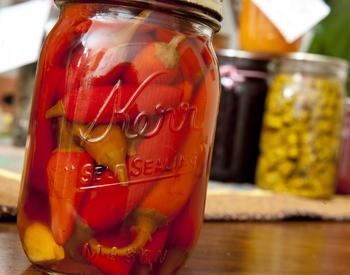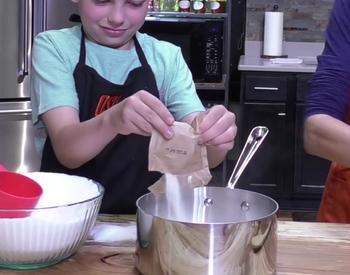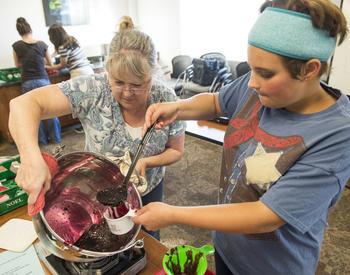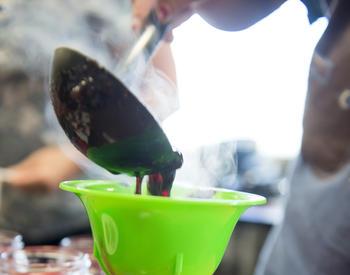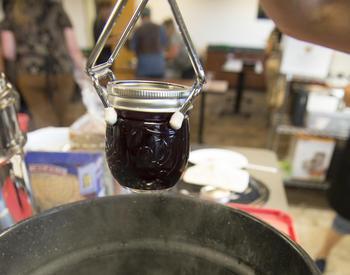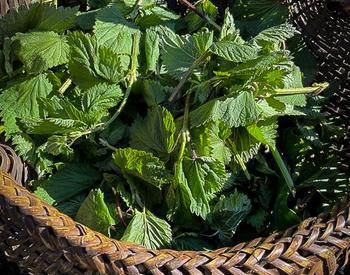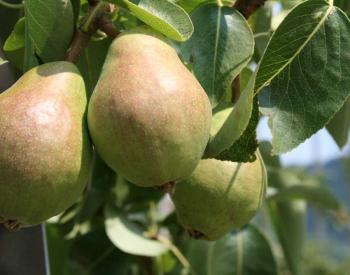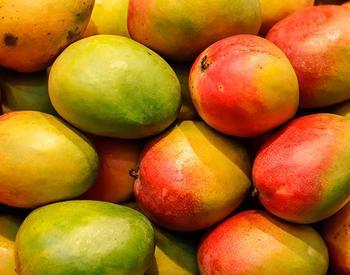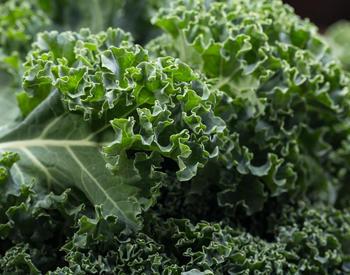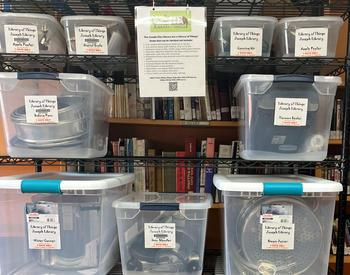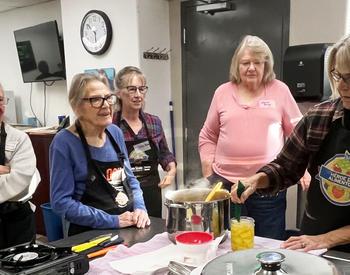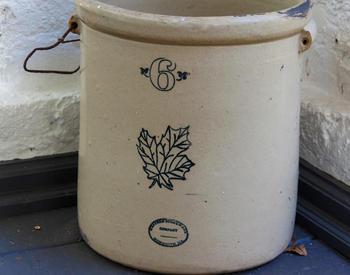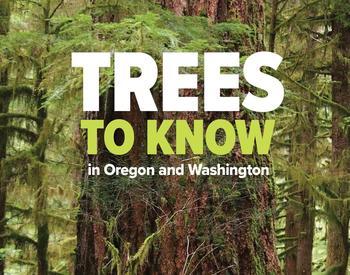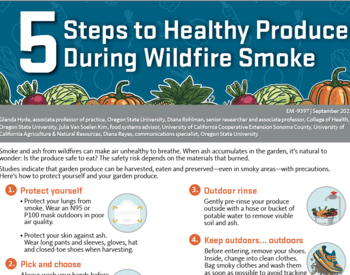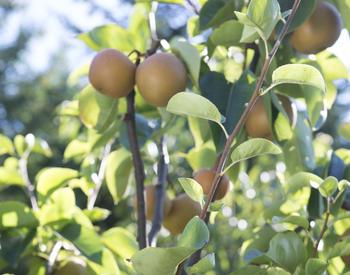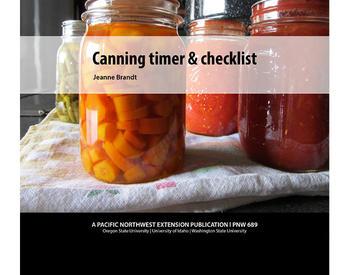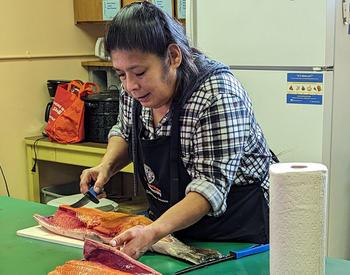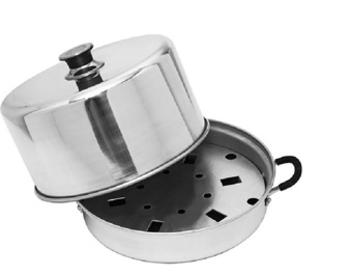My daughter told me she and her friends made strawberry jam that they processed in a dishwasher rather than in a boiling water bath. This sounds dangerous to me, and I wanted to know your opinion.
OSU Extension does not recommend using a dishwasher for processing jam. The heat penetration will be uneven and insufficient. These jars need to be brought up to boiling water temperature, 212º F at sea level. Most dishwashers don't get above 165º F. Jars processed in dry heat can also explode and cause the glass to break, which is a safety hazard. Canning jars are not designed for dry heat methods.
For jams, a boiling water canner should be used. Jams need to be fully submerged in water during processing to expel the oxygen that could help produce mold if left unprocessed.
Preventing spoilage in jams
To prevent spoilage from mold in the jam that your daughter made, she can store the jam in the refrigerator for use in the near future.
Your daughter may like to try freezer jam since processing in a boiling water canner is not necessary. To freeze jams use recipes with freezer pectin or contact pectin companies for directions.
Some freezer jams are heated for a short time and others can be made completely uncooked and frozen in the freezer. Check out the following resources to learn more:
- Uncooked Freezer jams, OSU Extension
- Freezer Jam recipe demonstration (video), OSU Extension
Boiling water canning
Home canners living on a budget or who have limited storage space can make their own boiling water canners from:
- An existing tall cooking pot. It needs to be able to hold water that will measure 1 to 2 inches above the tallest jar while the water is boiling.
- A metal tray that elevates the jars off of the bottom of the pot for good water circulation and heat penetration. The metal tray could be from the bottom of a pressure canner (these are sold separately at stores that sell canning supplies or on-line), possibly a round cake cooling rack, the rack from a pressure cooker, a silicon trivet or make a trivet of canning jar rings held together with twist-y ties.
- A tight-fitting lid
The following resources have safe, high quality recipes and preservation methods for making jams:
- Jams and Jellies: Problems and Solutions, OSU Extension
- Making Jams, Jellies and Fruit Spreads, OSU Extension
- Pectin package inserts or web pages from pectin companies.
